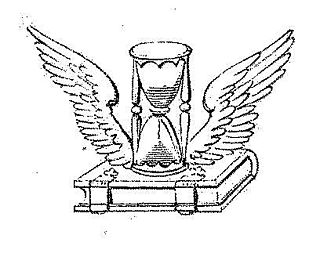Top Qs
Timeline
Chat
Perspective
Tempus fugit
Latin phrase meaning "time flies" From Wikipedia, the free encyclopedia
Remove ads
Tempus fugit (Classical Latin pronunciation: [ˈt̪ɛmpʊs̠ ˈfʊɡit̪]) is a Latin phrase, usually translated into English as "time flies". The expression comes from line 284 of book 3 of Virgil's Georgics,[1] where it appears as fugit irreparabile tempus: "it escapes, irretrievable time". The phrase is used in both its Latin and English forms as a proverb that "time's a-wasting".

Remove ads
Usage

Tempus fugit is typically employed as an admonition against sloth and procrastination (cf. carpe diem) rather than an argument for licentiousness (cf. "gather ye rosebuds while ye may"); the English form is often merely descriptive: "time flies like the wind", "time flies when you're having fun".
The phrase is a common motto, particularly on sundials and clocks. It also has been used on gravestones.
Some writers have attempted rebuttals: "Time goes, you say? Ah, no! alas, time stays, we go." by Henry Austin Dobson (1840–1921)."Hêd Amser! / Meddi Na! / Erys Amser / Dyn Â" on sundial at Univ of Bangor, North Wales. says the sundial was commissioned by Sir William Henry Preece, and offers an English equivalent: "Time flies, thou sayest – Nay! Man flies; Time still doth stay." Another English version is: "Time Flies, Say Not So: Time Remains,'Tis Man Must Go."
Bud Powell's composition "Tempus Fugue-it" is a pun on the phrase.
Remove ads
In the Georgics
Summarize
Perspective
The phrase's full appearance in Virgil's Georgics is:
Remove ads
See also
- Time flies like an arrow; fruit flies like a banana
- Ars longa, vita brevis
- Carpe diem
- Got a Lot o' Livin' to Do!, sung by Elvis Presley, in which "times a wasting" appears as a lyric.
- Memento mori
References
External links
Wikiwand - on
Seamless Wikipedia browsing. On steroids.
Remove ads
